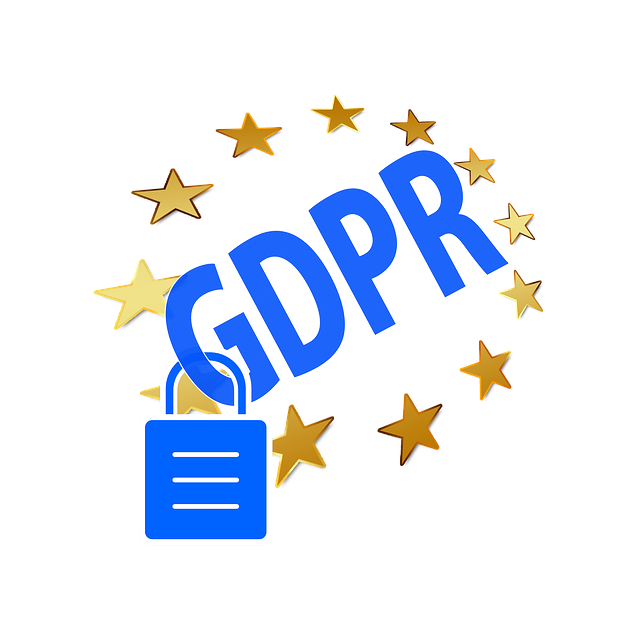Professional Translations for University Regulations: Ensuring Clarity for Global Students
TL;DR:Accurate translations of University Regulations and Policies are essential for maintaining academic integrity, student rights, and institutional procedures worldwide. Inaccurate translations can lead to severe consequences, including misunderst…….

TL;DR:
Accurate translations of University Regulations and Policies are essential for maintaining academic integrity, student rights, and institutional procedures worldwide. Inaccurate translations can lead to severe consequences, including misunderstandings and legal issues. Professional translators with academic language expertise and cultural sensitivity are crucial to ensuring clear communication about plagiarism, attendance, appeals, and disciplinary actions. Advanced translation technologies, like Machine Translation, support this process, but human experts remain vital for post-editing and guaranteeing precision and cultural adaptability. Reputable services employ rigorous Quality Assurance processes to deliver reliable translations that foster inclusivity and understanding within global academic communities.
University regulations and policies are integral to academic institutions, shaping student experiences and research pathways. However, ensuring these critical documents are accessible and understood globally presents a unique challenge. This article explores the importance of accurate translations for university papers, delving into the complexities of academic language, cultural nuances, and the role of professional translation services. We analyze current trends, future automation possibilities, and best practices to facilitate clear communication of university regulations and policies worldwide.
- Understanding the Importance of Accurate Translations for University Documents
- Challenges in Translating Academic Regulations and Their Impact
- Ensuring Quality: Professional Translation Services for Universities
- The Role of Native Language Experts in Policy Communication
- Technical Precision: Overcoming Jargon and Complex Language
- Cultural Sensitivity: Adapting Policies for Global Student Bodies
- Quality Assurance Processes for University Regulation Translations
- Future Trends: Automation and its Effect on Academic Translation Services
Understanding the Importance of Accurate Translations for University Documents
Accurate translations are paramount when it comes to university documents, especially University Regulations and Policies. These documents serve as the foundation for academic integrity, student rights, and institutional procedures. When translated incorrectly, they can lead to misunderstandings, legal issues, and a breakdown in communication—consequences that no institution should bear.
For instance, mistranslated rules on plagiarism or attendance could unfairly penalize students who are unfamiliar with the language of instruction. Similarly, policy statements regarding academic appeals or disciplinary actions must be conveyed clearly and precisely to ensure fairness and consistency across diverse student bodies. Trusting professional translators for these critical University Regulations and Policies is essential to maintaining a robust academic environment that values equity and clarity.
Challenges in Translating Academic Regulations and Their Impact
Translating university regulations and policies is a complex task that presents several challenges. One of the primary difficulties lies in the specialized nature of academic language, which often includes intricate legal terminology and concepts unique to educational institutions. These terms may not have direct equivalents in other languages, making it crucial for translators to possess both linguistic expertise and a deep understanding of higher education systems.
Moreover, cultural differences play a significant role in translation accuracy. What is considered clear and concise in one culture might be expressed quite differently in another. Misinterpretations or literal translations can lead to confusion, especially when dealing with rules governing student conduct, academic integrity, or administrative procedures. Ensuring that the translated documents maintain their original intent while adapting to cultural nuances is essential for effective communication among international students, faculty, and staff.
Ensuring Quality: Professional Translation Services for Universities
At a university, where knowledge and ideas are exchanged globally, it’s paramount to ensure clear communication of regulations and policies in various languages. Trusted translations of university documents are essential for international students, faculty, and staff to understand their rights, responsibilities, and expectations. Professional translation services specialize in accurately conveying the nuances and context of academic terminology, ensuring University Regulations and Policies are accessible and legally sound across all languages.
These services employ experienced linguists who possess a deep understanding of both the source and target languages, cultural contexts, and legal frameworks. By leveraging advanced translation technologies and rigorous quality assurance processes, they deliver precise and culturally sensitive translations. This level of professionalism ensures that University Regulations and Policies maintain their integrity while reaching a diverse global audience, fostering inclusivity and fairness within academic communities worldwide.
The Role of Native Language Experts in Policy Communication
In the realm of university regulations and policies, effective communication is paramount to ensure that students, faculty, and staff alike fully comprehend the rules and guidelines that govern campus life. This is where native language experts play a pivotal role. Their proficiency in both the source and target languages allows them to not just translate but also tailor content for different cultural contexts. These experts ensure that the nuances of University Regulations and Policies are accurately conveyed, avoiding potential misinterpretations that could lead to disciplinary issues or misunderstandings.
By leveraging their deep knowledge of language and culture, native language experts help bridge the gap between official documents and everyday campus life. They transform complex policy frameworks into clear, accessible resources, fostering a more inclusive and informed community. This specialized expertise is especially crucial for international students and faculty who may be navigating unfamiliar regulatory landscapes, ensuring that everyone on campus has a comprehensive understanding of University Regulations and Policies.
Technical Precision: Overcoming Jargon and Complex Language
Understanding complex university regulations and policies can be challenging, often due to technical jargon and intricate language. These documents are designed for professionals, yet students and staff members must navigate them effectively. The key to accessing this knowledge lies in precise translation that captures every nuance.
When translating university regulations and policies, it’s essential to employ a team of experts who not only grasp the subject matter but also understand how to convey technical concepts clearly. They must be adept at simplifying complex language without losing its intended meaning or legal integrity. By ensuring accuracy and clarity, these translators facilitate access to crucial information for students and faculty worldwide, fostering inclusivity and understanding within academic communities.
Cultural Sensitivity: Adapting Policies for Global Student Bodies
In today’s globalized educational landscape, university regulations and policies must transcend mere legal documentation to become inclusive tools that cater to a diverse student body. Cultural sensitivity is paramount when translating and adapting these documents for students from various international backgrounds. What might be considered acceptable or normal in one culture could be misunderstood or even offensive in another. Therefore, professional translation services specializing in academic texts should employ linguists who not only excel in language proficiency but also possess cultural expertise.
This approach ensures that university regulations and policies are accurately conveyed while avoiding potential pitfalls of cultural insensitivity. By tailoring these documents to the needs and sensitivities of global students, institutions can foster an inclusive environment, encourage understanding, and facilitate a seamless transition for international learners into academic life.
Quality Assurance Processes for University Regulation Translations
Ensuring accurate and reliable translations for university regulations and policies is paramount to maintaining academic integrity. Reputable translation services implement rigorous Quality Assurance (QA) processes to guarantee precision. These involve multiple stages of review by expert linguists who check for not just grammatical correctness but also cultural appropriateness and legal accuracy. The translators are often native speakers with a deep understanding of the source and target languages, ensuring the translated documents accurately convey the intent of the original University Regulations and Policies.
Additionally, QA processes may include term-by-term comparison, back-translation, and consultation with subject matter experts to verify the translation’s quality. These measures help mitigate errors and ensure that the translated materials are clear, concise, and consistent with the university’s guidelines. This meticulous approach safeguards the integrity of academic documents, facilitating seamless communication and understanding across diverse linguistic backgrounds.
Future Trends: Automation and its Effect on Academic Translation Services
The future of academic translation services is being reshaped by automation, a trend that promises to streamline processes and enhance efficiency across industries, including higher education. As universities continue to globalize, the demand for precise and consistent translations of university regulations and policies will only grow. Automation can play a pivotal role in meeting this demand. Machine translation (MT) technologies are rapidly evolving, offering improved accuracy and support for an increasing number of languages, especially those less commonly used in academic settings. This shift towards automation could significantly impact how universities manage their translated documents.
With advanced algorithms, MT systems can now handle complex linguistic structures, including the nuanced terminology often found in university regulations. This development has significant implications for translation service providers and universities alike. While automation may efficiently produce initial drafts, human translators will still be indispensable for post-editing, ensuring the highest level of accuracy and cultural adaptability. By leveraging these technologies, academic institutions can ensure their university regulations and policies are accessible to a global audience while maintaining the precision and clarity that such documents demand.
In ensuring clear communication of university regulations and policies globally, accurate translations are paramount. By leveraging professional translation services, native language expertise, and quality assurance processes, institutions can overcome challenges like technical jargon and cultural nuances. Automation, while promising, must balance efficiency with precision to maintain the integrity of these critical documents for diverse student bodies worldwide.






